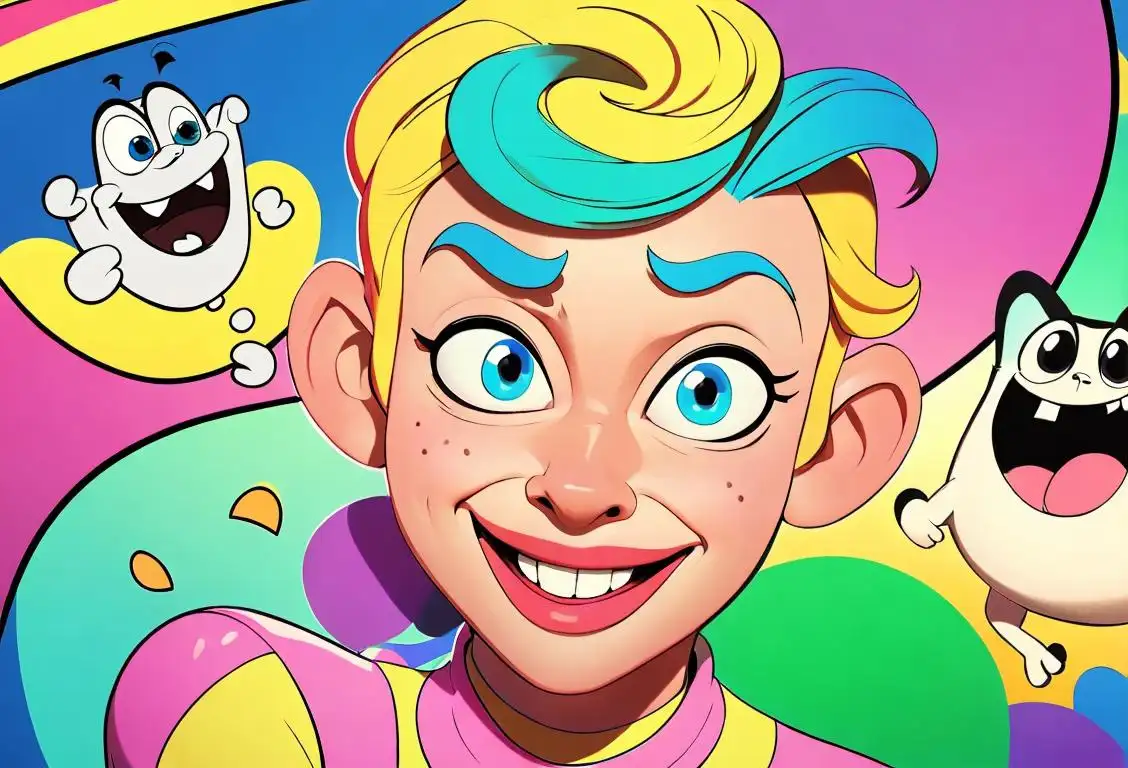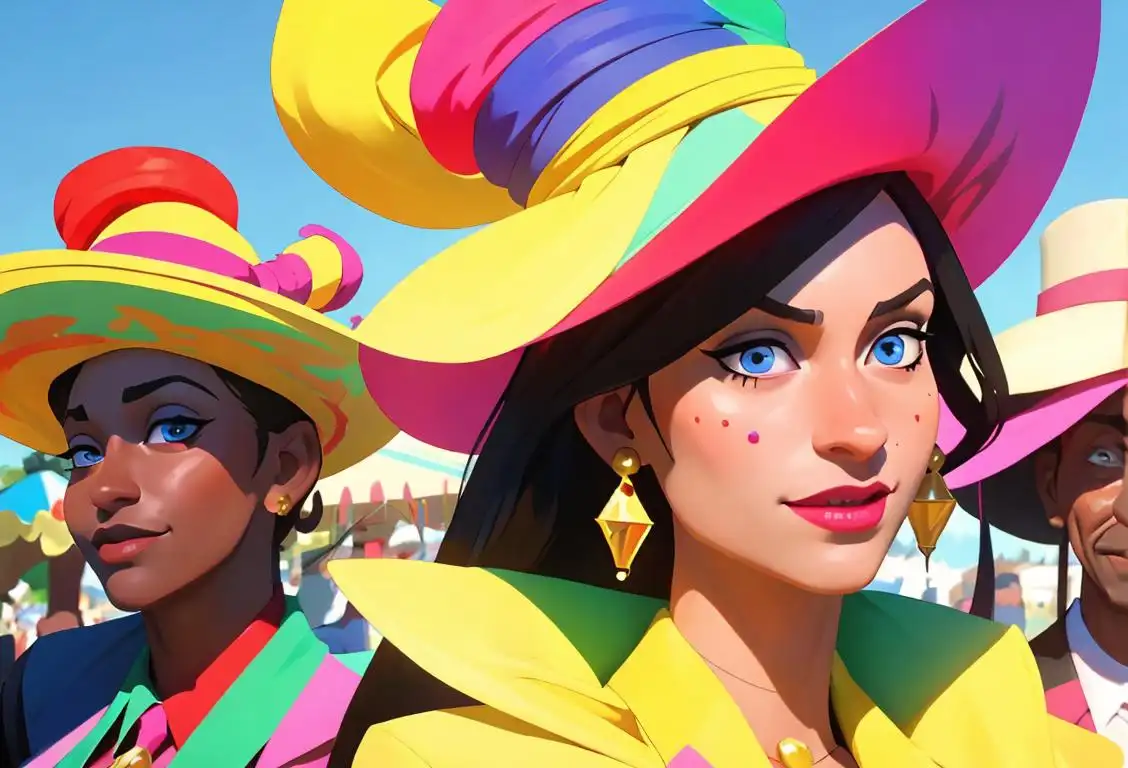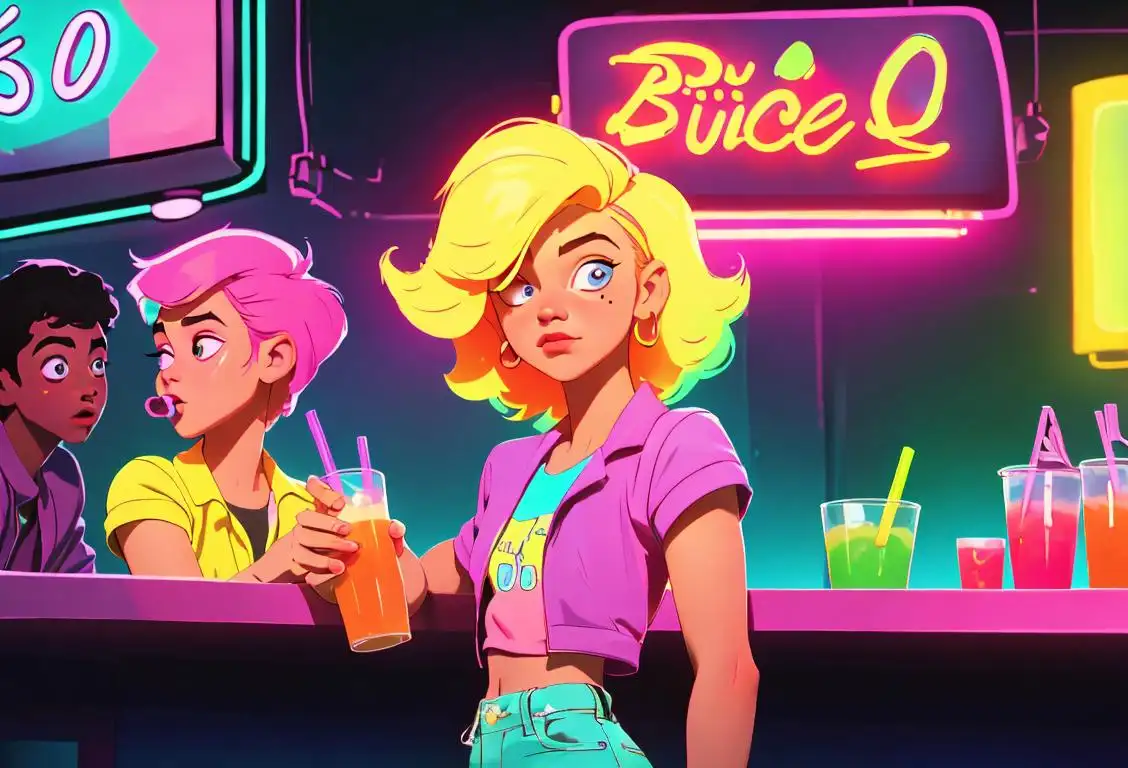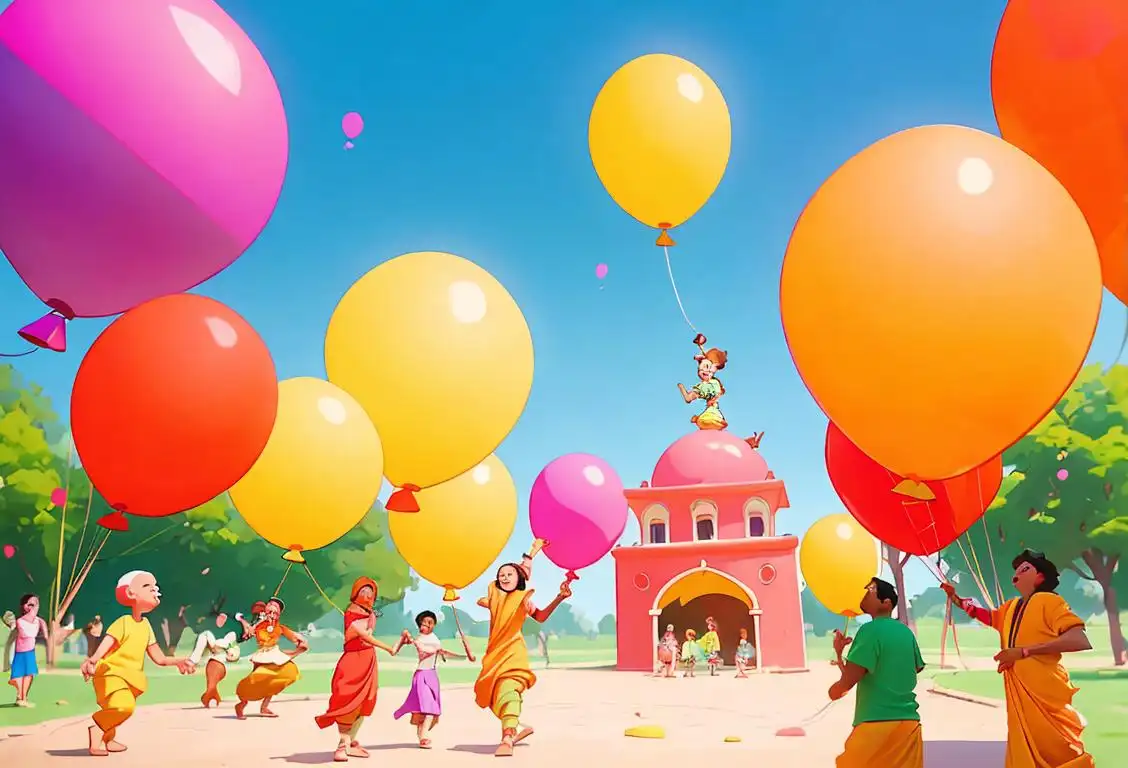National Haters Day

Welcome to National Haters Day, where we celebrate the art of hating...or do we? In a world where love and positivity seem to dominate the headlines, it's time for the haters to have their day in the spotlight. So, get ready to embrace your inner grumpy cat and join us as we explore the fascinating history of National Haters Day!
When is Haters Day?
It's national haters day on the 20th January.
The Birth of Haters Day
Believe it or not, National Haters Day has somewhat of a controversial origin. Some say it was started by a group of internet trolls who thought it would be amusing to create a day dedicated to spreading negativity. Others claim it was born out of a genuine need to vent frustration and let off some steam. Regardless of its origin, the concept quickly gained traction and became an unofficial holiday for those who enjoy a good rant.
How to Celebrate
Now, you might be wondering how one goes about celebrating National Haters Day. Well, fear not, we're here to help! The first step is to identify something you genuinely dislike. It could be a pesky sports team that always seems to win, a trendy food everyone seems to love but you can't stand, or even a celebrity whose every move makes your blood boil. Once you have your target, let the hating commence!
Spread the Hate Online
In this digital age, it's easier than ever to share your disdain with the world. Take to social media and let your followers know exactly why you can't stand that popular TV show or why you think the latest fashion trend is a disaster waiting to happen. Remember, it's all in good fun, so don't take things too seriously.
A Word of Caution
While it's okay to unleash your inner hater on this special day, it's important to remember that it should be done with a sense of humor and without causing harm. National Haters Day is not an invitation to spread hate speech or engage in cyberbullying. Keep it light-hearted and focus on things you dislike rather than attacking individuals or groups.
History behind the term 'Haters'
1993
Haters emerge as a counter-cultural term
In 1993, the term 'haters' emerged as a counter-cultural term. It was a slang term used primarily in African American communities to describe people who were envious or critical of others' success. The term was often used in hip-hop and rap music to denote those who were jealous of the achievements and popularity of others.
1998
The Birth of 'Haters'
The term 'haters' first gained prominence in 1998 with the release of the song 'No Scrubs' by the American girl group TLC. In the song, the lyrics 'No, I don't want no scrubs, a scrub is a guy that can't get no love from me' introduced the concept of 'haters' as those who are jealous or envious of others' success. This song quickly became a hit and popularized the term 'haters' in mainstream culture.
1988
Emergence in Rap Music
In 1988, the term 'haters' began to gain popularity in the world of rap music. This term referred to individuals who were critical or jealous of an artist's success. Rappers started using the word 'haters' in their lyrics to address those who doubted their talent or tried to bring them down. The rise of 'haters' in rap music helped introduce the term to a wider audience.
2003
Internet popularizes the term 'haters'
By 2003, the rise of the internet brought the term 'haters' into the mainstream. Online communities, especially forums and social media platforms, adopted the term to describe individuals who constantly criticized or expressed negativity towards others. As the internet became a breeding ground for both positive and negative interactions, 'haters' became a common term to dismiss and mock those who spread negativity online.
2002
Hip-Hop Influence
In the early 2000s, the term 'haters' gained further traction within the hip-hop community. Hip-hop artists like Jay-Z, Notorious B.I.G., and 50 Cent frequently referenced 'haters' in their songs, portraying them as individuals who try to undermine their success. This association with hip-hop culture elevated the term's popularity and brought it into wider use.
1990
Spread through Pop Culture
By the 1990s, the term 'haters' had expanded beyond the realm of rap music and began to infiltrate popular culture. It started appearing in television shows, movies, and even in everyday conversations. Its usage grew as people embraced the term as a way to dismiss or criticize those who showed negativity or animosity towards someone's success or lifestyle.
2004
Internet Culture and Memes
With the advent of the internet and the rise of social media platforms, the term 'haters' found a new home online. The internet provided a platform for individuals to express their opinions freely, which often led to the emergence of haters. Memes and online communities further propagated the term, often using it humorously to mock or dismiss critical individuals.
2006
Haters become a cultural phenomenon
Around 2006, 'haters' evolved into a cultural phenomenon. The term began to appear in popular culture, from newspaper articles to television shows. It became a buzzword, used not only to dismiss criticism but also to assert a high level of confidence in the face of adversity. 'Haters' were now seen as a sign of success and someone to be proud of, as they indicated that success had drawn envy and criticism from others.
2003
Web Popularity
With the rise of internet culture, the term 'haters' found a new home online. Online forums and social media platforms became hubs for 'haters' to express their negativity towards individuals, celebrities, or popular trends. Memes and viral content referencing 'haters' further propagated the term, making it a common part of internet slang.
2009
Haters Gonna Hate Meme
In 2009, the 'haters gonna hate' meme took the internet by storm. This phrase, originating from a song by American hip-hop artist Cam'ron, became a popular way to express indifference or resilience to criticism. It quickly became an internet sensation, with people using it in various contexts to convey an attitude of confidence and self-assurance.
2010
Mainstream recognition of 'haters'
By 2010, 'haters' had gained mainstream recognition and entered common parlance. The term was now widely used across various industries and even found its way into academic discourse. It had become an essential part of pop culture vocabulary, often employed humorously to address and dismiss unwarranted negativity. 'Haters' had transcended its origins and had become a symbol of resilience and self-assurance.
2010
Mainstream Acceptance
By the 2010s, the term 'haters' had firmly established itself in mainstream culture. It was no longer confined to hip-hop or online communities but had permeated everyday language. It became a versatile term used to describe anyone who expresses disapproval, envy, or criticism towards another person's achievements. 'Haters gonna hate' became a popular catchphrase, appearing on merchandise and in popular songs, solidifying the term's place in modern vernacular.
Present
Integration into Modern Vernacular
Today, the term 'haters' has become firmly ingrained in modern vernacular. It is often used casually to refer to anyone who criticizes or expresses negativity towards someone else's achievements or lifestyle. From social media captions to everyday conversations, 'haters' has become a go-to word for dismissing those who try to bring others down.
Did you know?
Did you know that National Haters Day gained popularity through viral memes and online communities? It seems that the world just can't resist a good rant!Tagged
fun humorFirst identified
20th January 2016Most mentioned on
20th January 2016Total mentions
6Other days
Cartoonist Day
Lottery A Fucker The Day
Disaster Traitor Feku Darpok Fools Day
Disgrace Every Single Day
Surprise Drug Test Day
Name Yourself Day
Ugly Christmas Sweater Day
Unemployed Day
Underage Drinker Day
Jumla Day






